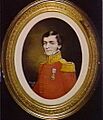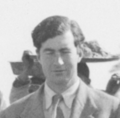List of colonial governors and administrators of Saint Lucia facts for kids
Saint Lucia is a beautiful island in the Caribbean. For a long time, it was controlled by different countries, mainly France and the United Kingdom. This article tells you about the important leaders, often called "viceroys" or "governors," who managed Saint Lucia from 1650 until it became a fully independent country in 1979.
In the 17th century, both the British and French wanted to control Saint Lucia. The island changed hands many times! Finally, in 1814, it became a British colony for good. Later, in 1958, Saint Lucia joined a group of Caribbean islands called the West Indies Federation. This group was short-lived. From 1967 to 1979, Saint Lucia was an "associated state" of the UK, meaning it handled its own local matters but the UK was still in charge of defense and foreign affairs. On February 22, 1979, Saint Lucia became a completely independent country.
Contents
- Saint Lucia's Journey Through Time
- Early Leaders of French and British Saint Lucia (1651–1802)
- Governors of British Saint Lucia (1803–1834)
- Lieutenant-Governors of Saint Lucia (1834–1857)
- Administrators of Saint Lucia (1857–1889)
- Commissioners of Saint Lucia (1889–1958)
- Administrators of Saint Lucia (1958–1967)
- Governors of Saint Lucia (1967–1979)
- Images for kids
Saint Lucia's Journey Through Time
Saint Lucia has a long and interesting history. Different groups and countries have controlled the island over the centuries. This timeline shows some of the key moments and who was in charge.
| Date Range | Country or People |
|---|---|
| 200/400–800 | Arawak people lived on Saint Lucia |
| 800– | Kalinago (Caribs) people settled Saint Lucia |
| 1550s | French Pirate François le Clerc used Pigeon Island as a base |
| 1605 | First English settlement attempt |
| 1626 | France first claimed Saint Lucia |
| 1638–1640 | English settlement, but the Caribs drove them away |
| 1635 | French settlements began |
| 1654 | Dutch people settled at Vieux Fort Bay |
| 1659 | French forces pushed back an English invasion |
| 1663 | Caribs sold Saint Lucia to the English, who then defeated the French |
| 1664–1666 | English took control |
| 1667 | The Treaty of Breda (1667) gave control back to France |
| 1674–1722 | Saint Lucia became part of the French Crown and was linked to Martinique |
| 1686–1687 | English raided and controlled the island |
| 1687 | English gave control back to France |
| 1697 | The Peace of Ryswick officially recognized French control |
| 1723–1743 | Saint Lucia was a neutral territory (agreed by Britain and France) |
| 1743–1747 | French colony (named Sainte Lucie) |
| 1748–1755 | Neutral territory again (agreed by Britain and France) |
| 1756–1761 | French colony (Sainte Lucie) |
| 1762–1763 | British took control |
| 1763–1777 | France was in control |
| 1778 | Britain took control |
| 1781–1783 | British took control |
| 1783–1793 | France was in control |
| 1794–1795 | British took control |
| 1796–1802 | British took control |
| 1802 | France was in control |
| 1803–1838 | British colony |
| 1814 | British control was officially confirmed |
| 1958–1962 | Part of the West Indies Federation |
| 1962–1967 | A Crown colony of the United Kingdom |
| 1967–1979 | An Associated state of the United Kingdom |
| 1979– | An independent country, part of the Commonwealth of Nations |
Early Leaders of French and British Saint Lucia (1651–1802)
Before Saint Lucia became fully British, many different leaders, often called governors or lieutenant governors, were in charge. These were mostly French, but some were British during periods of occupation. They were responsible for managing the island's affairs.
| Name | Year | Title | Country | Ref |
|---|---|---|---|---|
| Jacques Dyel du Parquet | 1651 | Lieutenant-General of Martinique, including Saint Lucia | French | |
| Louis de Kerengoan, sieur de Rousselan | 1652–1654 | Lieutenant Governor | French | |
| M. Lavriverie | 1657 | Governor | French | |
| M. Haquet | 1657 | Governor | French | |
| M. Le Breton | 1657 | Governor | French | |
| M. De Coutis | 1658 | Governor | French | |
| M. D'Aigremont | 1658 | Governor | French | |
| M. Lalanda | 1659 | Governor | French | |
| M. LeSeur Bonnard | 1660–1664 | Governor | French | |
| Mr. Robert Faulk | 1664 | Governor | French | |
| William, Lord Willoughby | 1672 | Governor of Saint Lucia, Barbados, St. Vincent and Dominica | English | |
| Charles de Courbon de Blénac | 1677 | Governor-General | French | |
| François d'Alesso d'Éragny | 1691 | Governor-General | French | |
| Thomas-Claude Renart de Fuchsamberg Amblimont | 1697 | Governor-General | French | |
| The Count d'Esnotz | 1701 | Governor-General | French | |
| Charles-François de Machault de Belmont | 1703 | Governor-General | French | |
| M. de Phelypeau | 1711 | Governor-General | French | |
| The Marquis Duquene | 1715 | Governor-General | French | |
| The Marquis de la Varenne | 1717 | Governor-General | French | |
| The Chevalier de Feuquieres | 1717 | Governor-General | French | |
| Captain Nathaniel Uring | 1722 | Deputy-Governor | English | |
| Charles de Tubières de Caylus | 1744 | Governor-General | French | |
| M. de Longueville | 1745 | Governor-General | French | |
| Pierre Lucien de La Chapelle de Jumilhac | 1763–1764 | Governor | French | |
| The Count d'Ennery | 1768 | Governor-General | French | |
| Baron de Micoud | 1769 | Lieutenant-Governor | French | |
| George Brydges Rodney | 1762–1763 | Commander-in-Chief of the Leeward Isles | British | |
| Claude Anne de Micoud | 1764–1771 | French | ||
| The Chevalier Claude Anne Gui de Micoud | 1771–1772 | Lieutenant Governor | French | |
| Frédéric Laure de Kearney (M de Karny) | 1772–1773 | Lieutenant Governor | French | |
| Alexandre Potier de Courcy | 1775–1775 | Lieutenant Governor | French | |
| Marc Étienne de Joubert | 1776–1776 | Lieutenant Governor | French | |
| The Chevalier Claude Anne Gui de Micoud | 1776–1781 | Lieutenant Governor | French | |
| General Anthony St Leger | 1781–1783 | Lieutenant Governor | British | |
| Barron Jean Zénon André de Véron de Laborie | 1784–1789 | Governor | French | |
| Colonel Jean-Joseph Sourbader de Gimat | 1789–1792 | Governor | French | |
| Jean-Baptiste Raymond de Lacrosse | 1792 - 1793 | Military Commissioner in Guadeloupe | French | |
| General Nicolas Xavier de Ricard | 1793–1794 | Governor | French | |
| Colonel Sir Charles Gordon | 1794–1795 | British | ||
| James Stewart | 1795 | British | ||
| Gaspard Goyrand | 1795–1796 | Commissary | British | |
| General John Moore | 1796–1797 | Lieutenant Governor | British | |
| Colonel James Drummond | 1797–1798 | Lieutenant Governor | British | |
| General George Prevost | 1798–1802 | Lieutenant Governor | British | |
| General George Henry Vansittart | 1802 | Lieutenant Governor | British | |
| General Jean-François-Xavier Noguès | 1802–1803 | Lieutenant Governor | French |
Governors of British Saint Lucia (1803–1834)
After 1803, Saint Lucia was firmly under British control. These leaders were called Commandants or Governors. They were responsible for the day-to-day running of the colony.
- General Robert Brereton 1803–1807, Commandant
- General Alexander Wood 1807–1814, Commandant
- Major Jacob Jordan 1814 (acting)
- General Francis Delaval 1814–1815, Commandant
- General Edward Stehelin 1815–1816, Commandant
- General Robert Douglas, Commandant 1816
- General Richard Augustus Seymour 1816–1817, Governor
- Colonel Edward O'Hara 1817–1818
- General Sir John Keane 1818–1819, Governor
- Major John Joseph Winkler 1819–1821 (acting Governor)
- General John Montagu Mainwaring 1821–1824, Governor
- Colonel Nathaniel Shepherd Blackwell 1824–1826
- General John Montagu Mainwaring 1826–1827, Governor
- Colonel Lorenzo Moore 1827–1829
- General David Stewart 1829, Governor
- Captain G.A.E. Delboate 1829 (acting Governor)
- Captain Robert Mullen 1829 (acting Governor)
- Major Francis Power 1829–1830 (acting Governor)
- James Alexander Farquharson 1830–1831, Governor
- George Mackie 1831, Governor
- Mark Anthony Bozon 1831–1832
- Colonel John Carter 1832 (acting Governor)
- James Alexander Farquharson 1832–1834 (second time)
Lieutenant-Governors of Saint Lucia (1834–1857)
During this period, the Lieutenant-Governors of Saint Lucia reported to a higher authority: the Governor of the British Windward Islands. This meant Saint Lucia was part of a larger group of islands managed together.
- Colonel Sir Dudley St. Leger Hill 1834–1837
- Colonel Thomas Bunbury 1837–1838
- Colonel John Alexander Mein 1838–1839
- Colonel Mathias Everard 1839–1841
- Captain George Murray 1841 (acting governor)
- Colonel George Graydon 1841–1843
- Captain William Caldwell 1841 (acting governor)
- Colonel Andrew Clarke 1843–1844
- Arthur Wellesley Torrens 1844–1848
- Sir Charles Henry Darling 1848–1852
- Henry Clermont Cobbe 1852
- Maurice Power 1852–1857
Administrators of Saint Lucia (1857–1889)
These leaders were called Administrators. They continued to manage Saint Lucia as a British colony.
- Henry Heggart Breen 1857–1862
- James Mayer Grant 1862–1869
- Sir William Des Vœux 1869–1878
- Arthur Elibank Havelock 1878–1879
- Sir Roger Goldsworthy 1881–1884
- Edward Laborde 1885–1889
Commissioners of Saint Lucia (1889–1958)
The role of the island's leader changed again to Commissioner. These individuals oversaw the administration of Saint Lucia for many decades, leading up to the mid-20th century.
- Robert Baxter Llewelyn 1889–1891
- Valesius Skipton Gouldsbury 1891–1896
- Charles Anthony King-Harman 1896–1899
- Sir Harry Langhorne Thompson 1900–1902
- Sir George Melville 1902–1905
- Philip Clark Cork 1905–1909
- Sir Edward John Cameron 1909–1914
- William Douglas Young 1914–1915
- Gideon Oliphant-Murray 1915–1918
- Wilfred Bennett Davidson-Houston 1918–1927
- Charles William Doorly 1927–1935
- Edward William Baynes 1935–1938
- Arthur Alban Wright 1938–1944
- Edward Francis Twining 1944–1946
- John Montague Stow 1947–1953
- John Kingsmill Thorp 1953–1958
Administrators of Saint Lucia (1958–1967)
After Saint Lucia joined the Federation of the West Indies, its leaders were once again called Administrators. This was a step towards greater self-governance.
- Julian Asquith, 2nd Earl of Oxford and Asquith 1958–1962
- Gerald Jackson Bryan 1962–1967
Governors of Saint Lucia (1967–1979)
On February 27, 1967, Saint Lucia became an "associated state" of the United Kingdom. This meant the island could manage its own internal affairs, like schools and roads, but the UK still handled defense and foreign policy. The leaders were now called Governors. Sir Frederick Joseph Clarke was a very important figure as he was the first Saint Lucian person to hold this high office.
- Sir Frederick Joseph Clarke 1967–1973, Governor
- Sir Ira Marcus Simmons 1973–1974, Governor
- Sir Allen Lewis 1974–1979, Governor
Finally, on February 22, 1979, Saint Lucia became a fully independent country! After this, the leader's role changed to Governor-General of Saint Lucia.
Images for kids
 | Victor J. Glover |
 | Yvonne Cagle |
 | Jeanette Epps |
 | Bernard A. Harris Jr. |

















